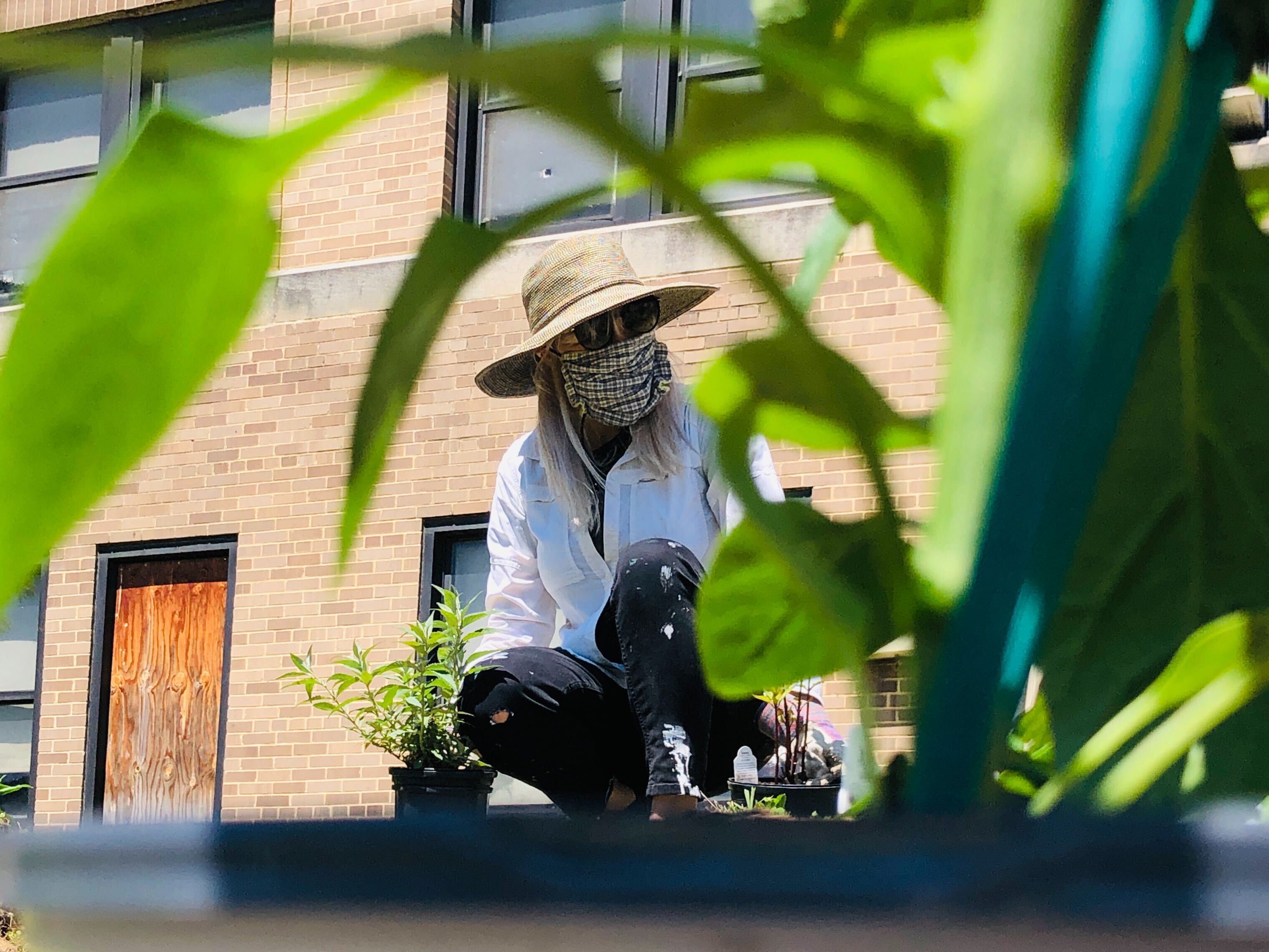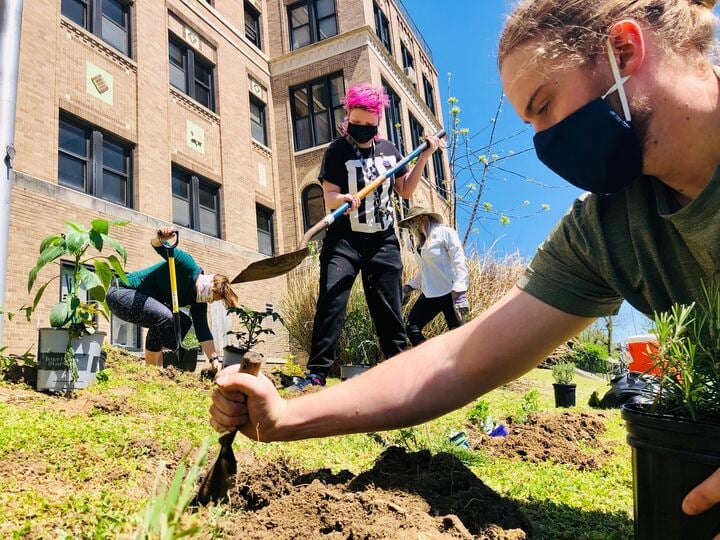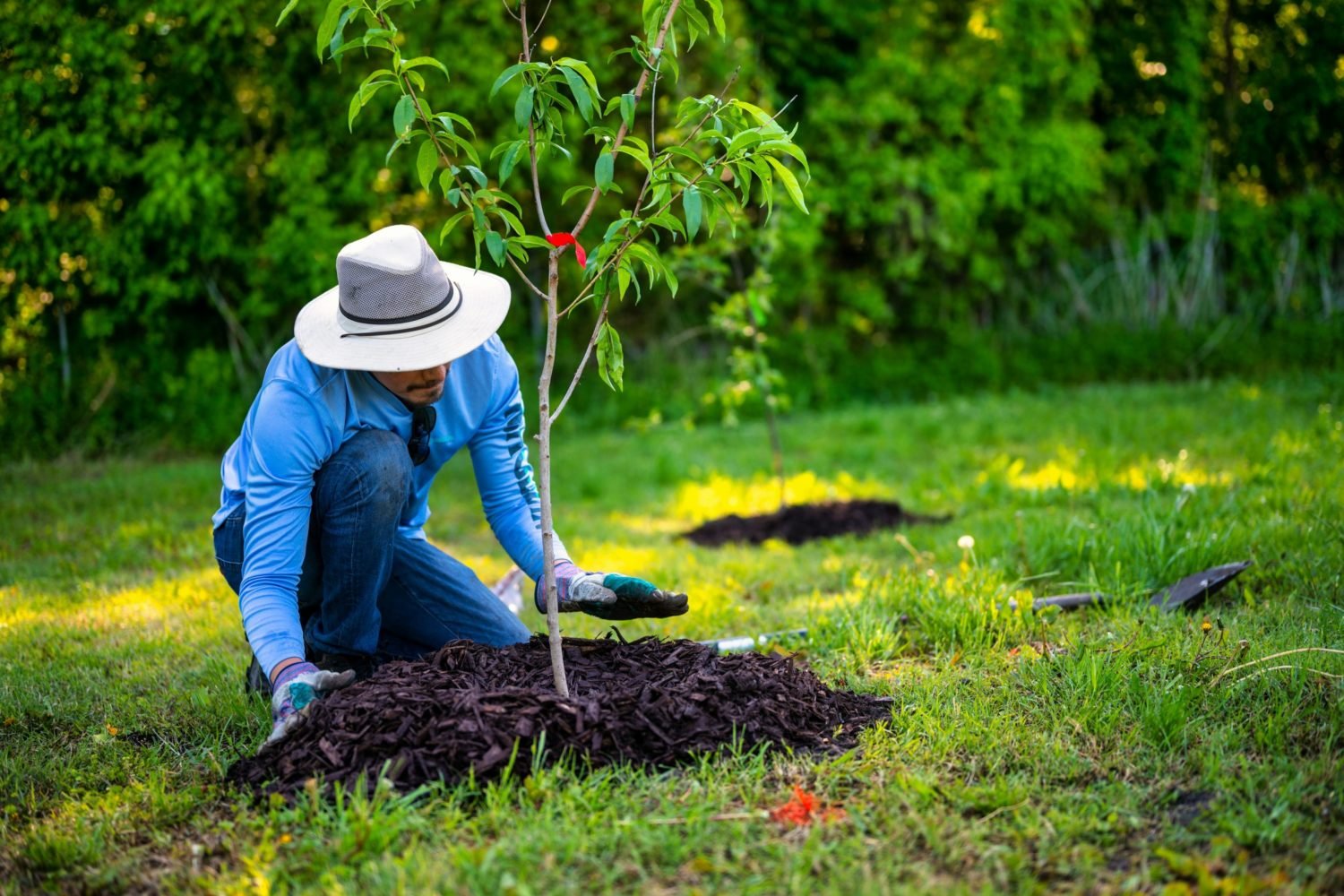About Coronavirus 2020
Washingtonian is keeping you up to date on the coronavirus around DC.
To commemorate the 50th anniversary of Earth Day, the environmental movement Extinction Rebellion sent out “guerrilla gardeners” to plant fruit and nut trees, herbs, and vegetables in food deserts in the DC area. Wearing masks and using proper social-distancing practices, XRDC members placed hundreds of plants in Columbia Heights, Brookland, Bloomingdale, Capitol Hill, and Silver Spring.
The group’s original plan, which they’d spent the past few months on, was a major Earth Day action in collaboration with Shut Down DC, in which they would shut down the city’s intersections for a week to disrupt “business as usual.” The effects of the pandemic beat them to the punch, so the group had to work fast to come up with a new idea.
Though XRDC has also implemented virtual actions in recent days, they felt it was important to have some kind of physical representation for Earth Day.
“The guerrilla-gardening idea got floated and we really liked it,” says member Russell Gray. “It’s something we can do while staying safe from the coronavirus, and as a symbolic action we’re trying to encourage people to rethink the way that they interact with the spaces around them. Our action is focusing on spaces that are unused right now, so we’re going to these places and planting [things] people can use.”

The planting initiative is ongoing. Those interested in helping future “guerrilla gardening” efforts can sign up here. For those who can’t or don’t feel comfortable meeting in person, XRDC is also looking for volunteers to start seedlings or collect cuttings for future planting projects.
For now, XRDC will continue with these smaller actions until it’s safe to take to the streets again. But once things start to reopen, expect the group to be back in full force and more disruptive than ever.
“Coronavirus is a huge disruption of business as usual, which means that carbon emissions went down dramatically,” Gray says. “This is a really valuable experience for our society, because we’re going to need the same scale and speed of response to the climate crisis. Now that people have been brought out of their complacency, I think they’ll be more open to [necessary disruption] in the future.”


















